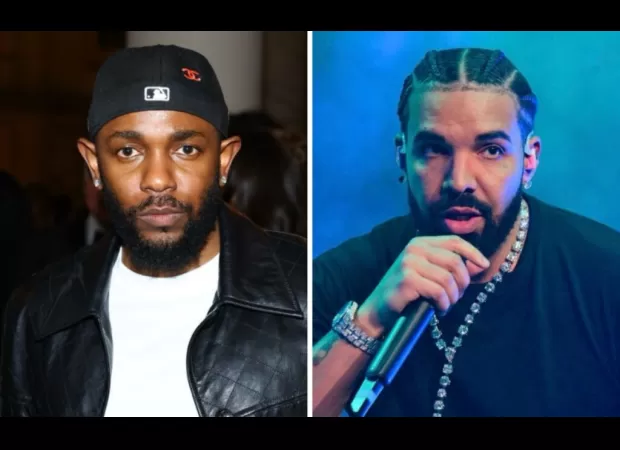Kendrick Lamar and Drake reportedly allow creators to use their music.
When a record label copyright claim is made, the host usually removes the video/stream, disappointing the creator and causing them to lose potential earnings.

A well-known streamer who goes by the name @YourRageZ on X (formerly known as Twitter) recently made a statement on his Twitter account, claiming that the music used in his reaction videos on Twitch to diss tracks by Drake and Kendrick Lamar did not result in automatic DMCA removal. In fact, the user even gave credit to the artists for their songs remaining on the platform.
The DMCA, or Digital Millennium Copyright Act, has been a major issue for content creators as record labels have been able to work with companies like Meta, YouTube, and Twitch to regulate their content. Typically, a record label will claim that a creator's video or stream contains copyrighted material, resulting in the host removing the content. This can be frustrating for creators as it can also lead to lost revenue.
However, according to Newsweek, this was not the case for the latest diss tracks from Kendrick Lamar and Drake. As reported by The Verge in 2019, DMCA requests are usually handled by record labels rather than individual artists. Newsweek reached out to representatives from both Drake and Lamar's labels for comment, but did not receive a response before publishing their article.
This news comes amidst an ongoing feud between Drake and Kendrick Lamar, with each artist releasing diss tracks that have sparked debate and discussion online. Some of the claims made in these tracks include allegations of domestic abuse and pedophilia, raising questions about the boundaries of diss tracks. While it's unclear if this shift in DMCA enforcement from record labels will continue, it does provide some relief for content creators.
In a tweet on May 6, 2024, @YourRageZ (real name FaZe YourRAGE) expressed his excitement about the news, stating that his reaction videos to Drake's music are now also free from copyright restrictions. This is certainly a victory for content creators, but as entertainment lawyer Jeff Becker explains, there are still complexities involved in DMCA enforcement. Unless a creator has consent from all parties involved in the production of a song, including the artist, label, and writers, they may still face copyright issues.
The unpredictable nature of DMCA enforcement is further highlighted by experts who believe that some videos should fall under the Fair Use clause, which allows for exceptions for "transformative works," although it does not clearly define what makes a work transformative.
In February, Universal Music Group (UMG), which holds the copyrights to music from popular artists like Taylor Swift, Drake, and Olivia Rodrigo, made the decision to remove their music from TikTok. They cited concerns about low artist compensation, exploitative AI technology, and limited content moderation. However, some believe that this move was motivated by UMG's profit margins rather than genuine concerns.
Ashleigh Wade, an assistant media studies professor, suggests that the real reason behind UMG's decision may be their desire to protect their artists from potentially harmful material that may be associated with their music on TikTok due to the lack of regulation on the platform. However, there is also speculation that it may be a preemptive move to avoid potential lawsuits. This issue raises questions about copyright infringement and the actions of major record labels, as seen in a recent lawsuit against UMG by the creators of Mary J. Blige's "Real Love."
2 Views




